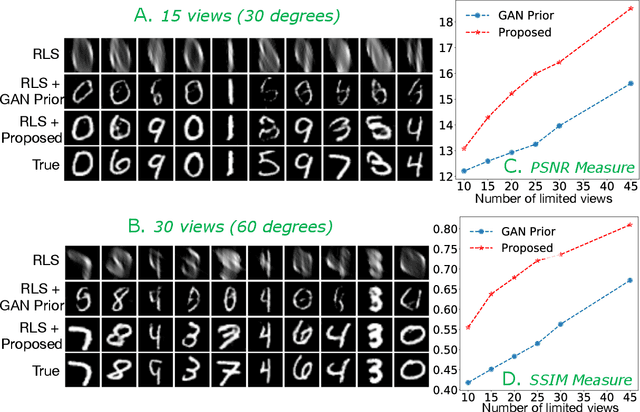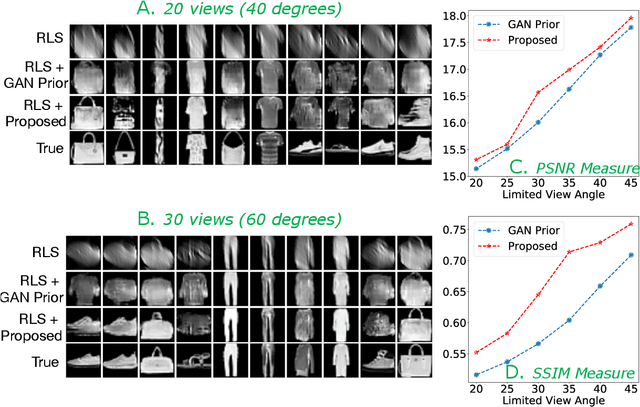Kyle M. Champley
Tomographic Model Based Iterative Reconstruction of Symmetric Objects
Oct 13, 2024



Abstract:Computed Tomography (CT) reconstruction of objects with cylindrical symmetry can be performed with a single projection. When the measured rays are parallel, and the axis of symmetry is perpendicular to the optical axis, the data can be modeled with the so-called Abel Transform. The Abel Transform has been extensively studied and many methods exist for accurate reconstruction. However, most CT geometries are cone-beam rather than parallel-beam. Using Abel methods for reconstruction in these cases can lead to distortions and reconstruction artifacts. Here, we develop analytic and model-based iterative reconstruction (MBIR) methods to reconstruct symmetric objects with an arbitrary axis of symmetry from a cone-beam geometry. The MBIR methods demonstrate superior results relative to the analytic inversion methods by mitigating artifacts and reducing noise while retaining fine image features. We demonstrate the efficacy of our methods using simulated and experimentally-acquired x-ray and neutron projections.
Improving Limited Angle CT Reconstruction with a Robust GAN Prior
Oct 14, 2019

Abstract:Limited angle CT reconstruction is an under-determined linear inverse problem that requires appropriate regularization techniques to be solved. In this work we study how pre-trained generative adversarial networks (GANs) can be used to clean noisy, highly artifact laden reconstructions from conventional techniques, by effectively projecting onto the inferred image manifold. In particular, we use a robust version of the popularly used GAN prior for inverse problems, based on a recent technique called corruption mimicking, that significantly improves the reconstruction quality. The proposed approach operates in the image space directly, as a result of which it does not need to be trained or require access to the measurement model, is scanner agnostic, and can work over a wide range of sensing scenarios.
 Add to Chrome
Add to Chrome Add to Firefox
Add to Firefox Add to Edge
Add to Edge